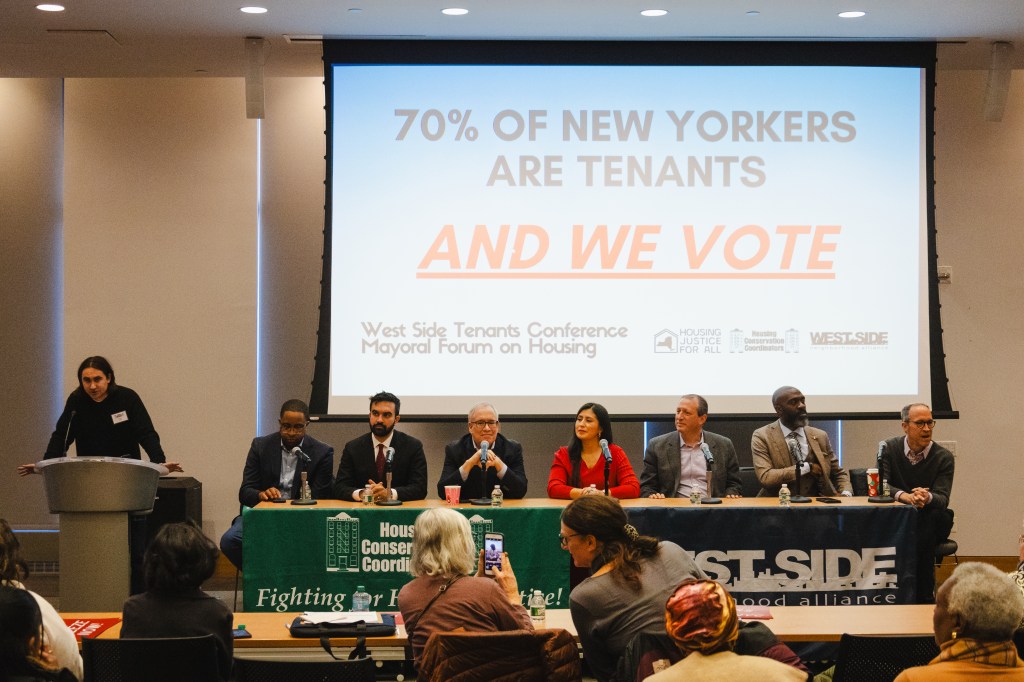I am writing in response to your May 14 editorial regarding my vote on the Metropolitan Transportation Authority bailout legislation (“Padavan Goes Off−track”).
I share the concerns of thousands of commuters and transit riders who reside in northeast Queens who want and deserve an affordable, reliable and safe transit system with low fares and tolls. The MTA bailout legislation, however, is flawed and does not adequately invoke a long−term solution to the crisis and mismanagement of the MTA.
Legislation of this scope and magnitude needs a full and open vetting, but the legislation was crafted in secret and not once was the MTA leadership called before any state Legislature committee during the crafting of this bill. Doing so would have allowed for questions that would have hopefully provided a clearer and accurate picture of their finances and management structure.
Instead, legislative leaders relied on the word of an agency notorious for its fuzzy math and fiscal mismanagement.
State Senate Majority Leader Malcolm Smith (D−St. Albans) commented about progress toward a plan April 27: “It’s not about the merits, it’s just about what gets us there with what we need to get passed.” Those sad comments came following a closed−door meeting with Gov. David Paterson and state Assembly Speaker Sheldon Silver (D−Manhattan). Eventually, the plan was rammed through the process without any time for the public to adequately review it.
After reaching out to Paterson to work on a bipartisan solution, my efforts were rebuffed for politics. This is not how you address the process and eventual legislative outcome when dealing with the daily lives and budgets of millions of city commuters and transit riders.
The centerpiece of the plan, the payroll tax, would place further strain on small businesses, nonprofits and non−public schools after the disastrous state budget passed a few weeks ago. Nonprofits facing already tough economic conditions may have to reconsider the services they provide to those who need it the most.
Small businesses facing soaring costs and increasing tax burdens may have to cut wages and benefits and lay off hard−working New Yorkers. A vibrant, small business sector and strong employment incentives are vital to our economic recovery. This legislation will achieve the complete opposite, hinder recovery and stifle growth.
Additionally, the legislation provides no plan for restructuring the operation and overhauling the management at the bloated and dysfunctional transit agency. Much to the detriment of the people it serves, without any comprehensive plan to reform the agency, commuters, transit riders and taxpayers will still have to deal with the MTA in its current structure.
What is needed is more accountability, transparency and real reform, not a Band−Aid approach. With the capital needs of the MTA only planned for two years, a long−term road map for the MTA was pushed aside.
I believe the MTA bailout plan does not achieve a stronger, efficient and better managed MTA and that we will eventually be back addressing the same issues in the near future. To frame my vote against the plan as partisan is shortsighted, especially with the myriad problems associated with the plan and when a number of Assembly Democrats voted against the legislation.
Like always, principles and standing up for struggling small businesses, nonprofits, non−public schools and New Yorkers in these challenging economic times, not politics, was the driving force in my vote against the flawed MTA bailout plan.
Frank Padavan
State Senator
Bellerose



































